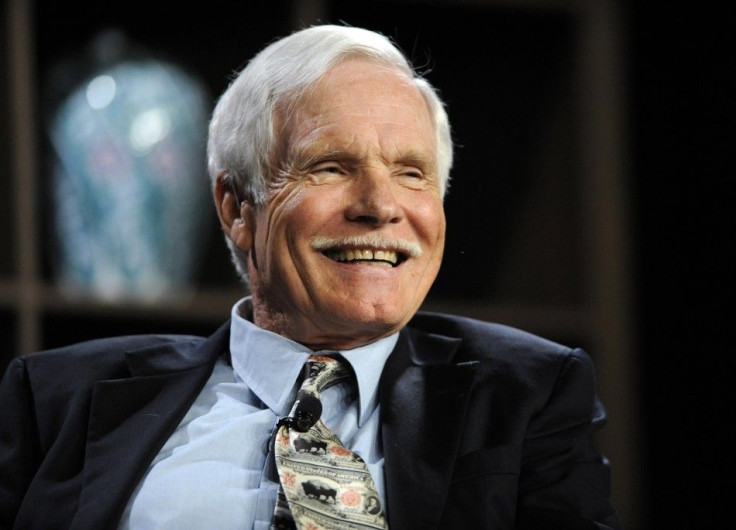Being Ted Turner: Founder Of CNN And Former America's Cup Champion Talks About Life At 75

Ted Turner, the outsized Southerner who inherited a small media company after his father's suicide and turned it into the pioneering CNN, turned 75 this week.
The outspoken media mogul, America's Cup Champion sailor and one-time nation's largest private land owner has left his mark on the country in many ways.
He sat down recently with CNNMoney to answer a few questions about turning 75 and being Ted Turner.
Here's the Q&A:
How are you feeling about life at 75?
It's better than being dead.
How's your health?
It's okay, but it's not great. I have both sleep apnea and atrial fibrillation, which are both debilitating conditions.
You have a pacemaker?
I do. I had it put in a few months ago. I have two. I feel a little better. But I still get exhausted real easily.
How would you describe yourself today at 75 compared to Ted Turner at 50?
I had more energy at 50. On the other hand, at 75, I've probably got a little more wisdom and good judgment than I had at 50 because I've got more experience. But I haven't really changed. I'm still driven by the same philosophy.
And what is that?
Well, we need to make a lot of changes in order to survive another 50 years. We're in a lot of trouble. For one thing, we've got thousands of nuclear weapons on hair-trigger alert. An accident or an earthquake could cross wires and off we go. And that would be the destruction of the world. If the Russian nuclear arsenal was fired at the United States and other targets and we fired back at them with thousands of nuclear weapons, it would be the end of life on earth.
Ted, I interviewed you for a Fortune cover profile called "Gone With the Wind" 10 years ago. In 2003 you said to me, "I think the chances are fifty-fifty that humanity will be extinct in 50 years." Do you still believe that?
Fifty years aren't up yet. I'd say that's generally the case. The nuclear threat is the most imminent threat. But global climate change and environmental destruction of the earth and our resource base, that's the other great threat. It works a little bit slower, but it would still work at a 50-year time frame very possibly.
© Copyright IBTimes 2025. All rights reserved.






















